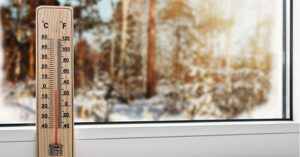 While the predicted “Godzilla” or “Bruce Lee” El Niño might be keeping temperatures on Long Island on the mild side so far this winter, there’s no reason to not implement a home heating strategy to lower energy bills.
While the predicted “Godzilla” or “Bruce Lee” El Niño might be keeping temperatures on Long Island on the mild side so far this winter, there’s no reason to not implement a home heating strategy to lower energy bills.
There are many things that can be done to cut home heating costs this winter and beyond, no matter what the temperature is outside.
Tips for Cutting Your Home Heating Bills This Winter
For starters, by now an annual inspection of your oil or gas heating system should’ve been completed. If not, then consider calling a full-service home heating company such as Tragar Oil and making an appointment for an annual home heating system inspection to ensure it’s working at optimum efficiency.
In addition, here are some tips for reducing your home heating bills this winter compiled by the home heating experts at Tragar Oil, your Long Island green energy company:
- Consider switching from traditional oil to Bioheat® to increase an oil heating system’s energy efficiency. It provides a cleaner and more complete burn than traditional heating oil alone.
- Install a programmable thermostat like an iComfort by Lennox, set it to the lowest comfortable temperature this winter and lower the set point while sleeping and away from home, according to energy.gov.
- In addition, cover and seal drafty windows and other leaks with caulk and weatherstripping, suggests energy.gov.
- Keep the curtains and shades on south-facing windows open during the day to let warm sunlight inside and closed at night to reduce the chill from cold windows, recommends energy.gov.
- Lock windows and doors for a better seal, fix leaks in ductwork, insulate the attic access door, adjust door thresholds to keep warm air inside and replace worn weatherstripping, advises popularmechanics.com.
- Regularly change air filters on heating systems at least every three months and once a month during heavy-use winter months, notes energystar.gov.
- Make sure the chimney is clean, says energy.gov, and make sure the fireplace damper is closed tightly, adds thisoldhouse.com.
- Run ceiling fans on low in a clockwise direction to redistribute warm air in the winter, counsels usnews.com.
Long-Term Solutions for Better Home Energy Efficiency
To ensure home energy bills stay low in the long term, consider having a home energy audit or home energy assessment to review how much energy is consumed and what measures can be taken to make the home more energy-efficient. This appraisal reveals problems that may, when corrected, save significant amounts of money over time.
To that end, energystar.gov further urges Long Island homeowners to consider installing ENERGY STAR-certified heating equipment, especially if the heating system is more than 10 years old or having trouble maintaining comfortable temperatures.
According to energy.gov, the residential energy efficiency tax credit has also been retroactively renewed from January 1, 2015 to December 31, 2016. However, check the tax credit requirements before claiming the credit on 2015 tax forms or committing to energy-efficient home improvement projects in 2016.
Last, but not least, contact the New York State Energy Research and Development Authority (NYSERDA) or the local gas (National Grid) or electric (PSEG Long Island) utility because, according to NYSDEC, there are additional incentives available to help pay for recommended improvements.
Contact Tragar Oil today to learn more about how to cut heating costs this winter. Our green energy experts can answer any questions about how to save energy and money this heating season, and advise against costly mistakes homeowners can make with their heating systems. Don’t forget to ask about our free, no-obligation quote! Happy New Year!


2 Responses